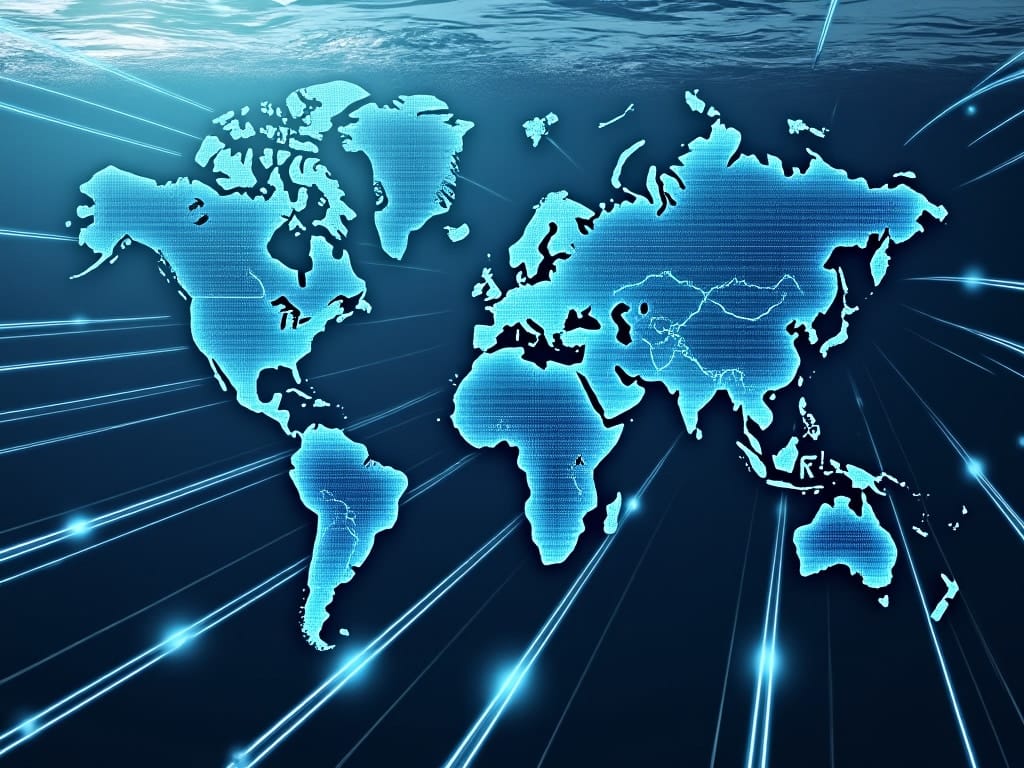Meta, the parent company of Facebook, Instagram, and WhatsApp, is working on an ambitious project to build a submarine fiber optic cable that will connect various points around the globe, according to sources close to the company. This massive project, which could involve an investment exceeding $10 billion, aims to strengthen the global data infrastructure to support the growing traffic demands generated by Meta’s platforms and its focus on artificial intelligence.
An Unprecedented Project
The submarine cable, which will extend over 40,000 kilometers, will be a milestone for Meta as it will be the company’s first fully-owned project of its kind. This approach enhances Meta’s control over the infrastructure necessary to manage its enormous data traffic, which accounts for 10% of global fixed traffic and 22% of mobile traffic.
While the project is still in its early stages, with preliminary plans but no physical deployment, Meta is expected to provide more details in early 2025. These will include the planned route, capacity, and strategic goals of the cable. According to sources, the proposed layout would follow a “W” shape, connecting the east coast of the United States with India via South Africa, and from India to the U.S. west coast through Australia.
Technical and Geopolitical Challenges
Building a cable of this magnitude involves overcoming numerous challenges. The submarine cable industry has limited capacity, with few companies like SubCom available to execute these projects and a high demand from large clients like Google. According to analyst Ranulf Scarborough, the lack of available resources could mean that Meta’s project will be built in segments over several years.
Additionally, the cable’s route aims to avoid high-tension geopolitical areas such as the Red Sea, the South China Sea, and the Straits of Malacca and Singapore—critical points for data traffic where cables have been damaged in recent conflicts. This approach reflects the growing need to ensure the security and resilience of critical infrastructures against global risks.
Strategic and Economic Implications
For Meta, exclusive ownership of this cable offers key strategic advantages. It ensures priority in traffic capacity for its platforms, improves service quality, and reduces dependence on traditional operators. Furthermore, it strengthens its presence in key markets such as India, where the company leads in users on Facebook (over 375 million), Instagram (363 million), and WhatsApp (536 million).
India not only represents a massive market but also an opportunity to develop data center capabilities and train artificial intelligence models. According to submarine cable expert Sunil Tagare, India’s low cost of bandwidthBandwidth is the maximum transfer capacity of… for computing and its growing investments in technological infrastructure make it an ideal location for developing advanced AI solutions.
Meta and the Evolution of the Submarine Cable Ecosystem
This project reinforces a trend where major tech companies like Google, Amazon, and Microsoft have taken a more active role in building and managing submarine cables. According to Telegeography, Meta is already a co-owner of 16 submarine networks, including the recent 2Africa, which encircles the African continent. However, this new cable will be the first fully owned by Meta, solidifying its position as a key player in global data infrastructure.
While Meta has not officially commented on the project, it is clear that this initiative represents a strategic move to ensure the sustainability of its global operations and to respond to the increasing demands for connectivity in an increasingly digitized world.
Source: TechCrunch

